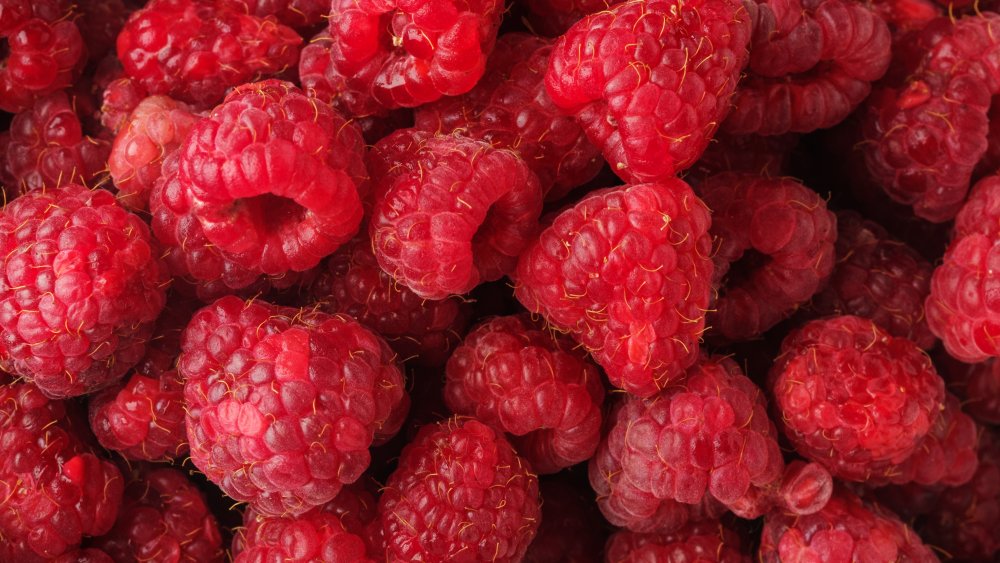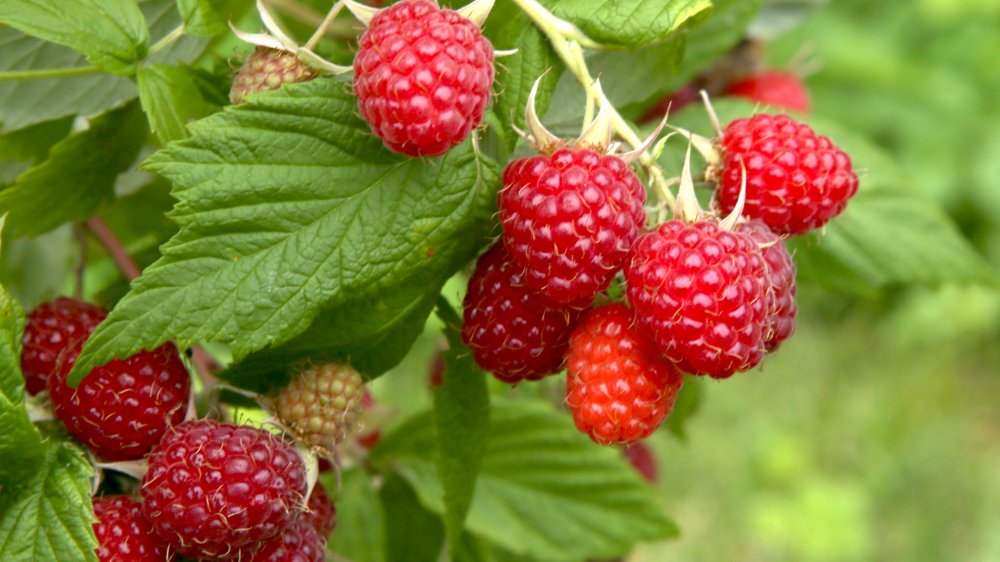What It Means When There Are Black Spots On Your Raspberries
Per the Agricultural Marketing Resource Center, the United States ranks third in the production of raspberries worldwide. These delicate fruits can add their sweet flavor to everything from pies, jams, salads, sauces, and smoothies. Raspberries are a member of the Rosacea family, which also includes roses, blackberries, and apricots. Raspberries have a slightly-crunchy texture, which they owe to their seedy nature — in fact, Raspberry Depot says a single raspberry contains an average of 100 to 120 seeds. These small fruits are also jam packed with vitamin C, according to Health; raspberries contain a whopping 50% of the daily recommended intake. But the AMRC states that the fragile nature of this berry means its shelf life is not very long.
While most of us are fans of the beautiful red raspberries that line our grocery store shelves and tables at local farmer's markets, there are actually over 200 varieties of this fruit that range in color from purple to golden yellow to black. But have you ever bought a carton of raspberries and while you were gently washing them in your strainer or colander noticed little black spots all over the skin of the berry? What are they and do they render your berries inedible?
The black dots on your raspberries are actually caused by an infection
Per David's Giant Vegetables, it turns out those black spots are probably being caused by a fungal or bacterial infection. If you think it sounds gross, we agree. Apparently when a raspberry bush comes under threat from these infections, they produce toxins that breakdown the plant's immune system, killing its cells and producing the tiny black dots on the tender berries. So does that mean they are harmful to consume?
According to some, if there is black anything on your raspberry, you should probably throw them away, but others say it's fine to eat raspberries with black dots as long as you wash them, noting they just might not taste all that great. Furthermore, they caution that dirt carrying potential bacteria that may be on your fruit is of greater concern than the black spots. Typically these spots are unsightly and are not a threat to a person's health. But if you still have concerns about the black spots, you can just cook your raspberries and make them into a syrup or compote. The real time to toss these berries is when they become mushy and appear to have mold growing on them or develop a foul smell.

